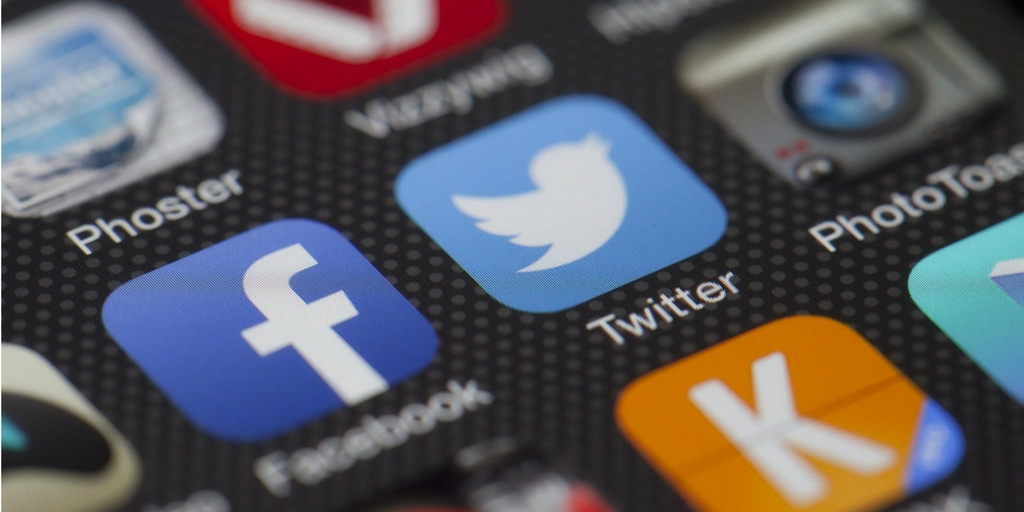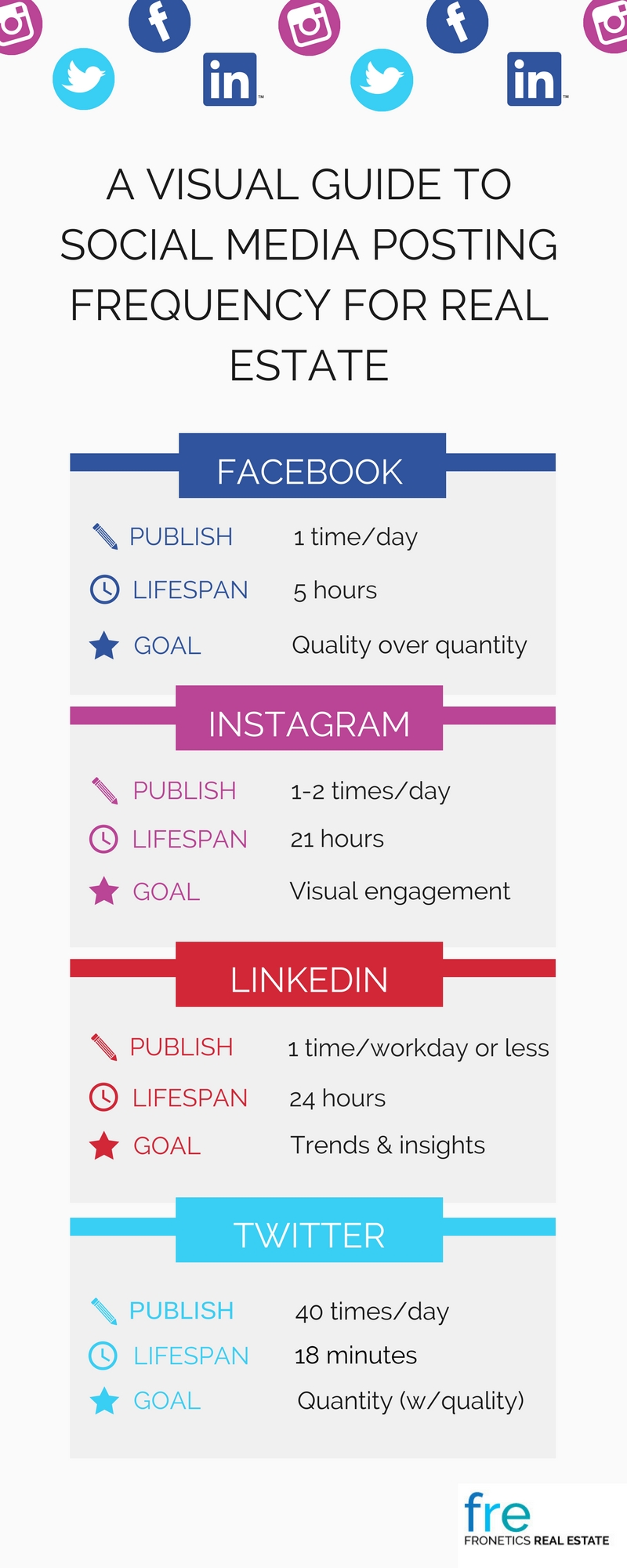Posts Tagged "Twitter"

Top 5 Real Estate Marketing Influencers
Influencer marketing capitalizes on the relationship between popular influencers and their followers to help your property get in front of the right buyers. Here are five of the top real estate marketing influencers in 2019.
Highlights:
- Influencer marketing is a form of marketing in which real estate marketers identify individuals who have influence over potential buyers and create marketing campaigns and activities around them.
- Real estate buyers trust influencers talking about your properties more than they trust you talking about yourself.
- Here are five of the top real estate marketing influencers whose content marketing strategies are driving their success.
Influencer marketing is a form of marketing in which real estate marketers identify individuals who have influence over potential buyers and create marketing campaigns and activities around these influencers. Why is this so effective? Because real estate buyers trust influencers talking about your properties more than they trust you talking about yourself.
Is influencer marketing effective?
The State of Influencer Marketing 2019 report shows that real estate marketers are already taking full advantage of this trend with 91% of marketers finding influencer marketing to be effective.
With the real estate industry constantly changing, it’s imperative for marketers to stay on top of new trends. There are tons of talented marketers posting daily content to attract new buyers. Here are five of the top real estate marketing influencers whose content marketing strategies are driving their success.
Top 5 real estate marketing influencers
1. Jay Baer
Jay Baer has 26 years of marketing and customer service expertise teaching businesses how to create a different customer experience that they notice and talk about. He is a New York Times best-selling author, founder of Convince and Convert, and co-author of Youtility for Real Estate. The book focuses on the core premise of Youtility — making your marketing so useful that people would pay for it — and shows how it works for real estate. With over 14,000 followers on Instagram alone, his blog, video, and social media posts are packed full of content marketing tips and are an excellent resource for real estate marketers.
2. Tom Ferry
Founder of Tom Ferry International, Ferry is a real estate coach and best-selling author of Life! By Design and Mindset, Model and Marketing! Ranked the #1 Real Estate Educator by Swanepoel Power 200 and racking up almost 50,000 Twitter followers, Ferry’s ever-growing influence impacts professionals in a wide variety of ways, including rigorous accountability coaching. His popular show, #TomFerryShow, delivers free, fresh, and relevant weekly real estate tips.
3. AmyChorew
Amy Chorew is a learning and technology trend expert, author, speaker, social media maven, and realtor. She is an expert on leveraging online marketing tools to dramatically increase property sales and is currently developing the learning platform for Better Homes and Gardens Real Estate. Chorew has over 20,000 Twitter followers and posts daily marketing tips aimed at real estate brands and developers.
4. Katie Lance
Katie Lance is strategist who specializes in social media and content marketing. She has worked with many real estate brands, including RE/MAXX LLC, Docusign, Homekeepr, and hundreds more. Lance is a trained public speaker focusing on the latest tools and strategies in social media, mobile, and technology. Her book, #GetSocialSmart, was a best-seller on Amazon. With over 31,000 Twitter followers, Lance creates and curates posts and video — check out her Vimeo channel — to educate real estate marketers on the latest trends and marketing idea.
5. Seth Price
Seth Price, author and keynote speaker, is a branding expert dedicated to empowering personal brands to turn recognition into revenue. Author of the new book, The Road to Recognition, An A-to-Z Guide to Personal Branding, Price is an expert on turning real estate brands into household names. He is the vice president of sales and marketing for Placester and one of the authors of their blog. Price also hosts “The Craft of Marketing and the Marketing Genius” podcasts, in addition to being a regular contributor to the Huffington Post, Marketing Profs, Realtor Magazine, and Inman News.
Related posts:
- 5 Real Estate Marketing Strategies for 2019
- How Inbound Marketing for Real Estate Works to Improve Sales
- How to Explain Content Marketing ROI to Win (or Keep) Buy-In
Posts Tagged "Twitter"

Twitter and Real Estate Marketing: 3 Tips to Get You Started
Thinking of using Twitter to market your real estate brand? The social media platform helps build brand awareness and boost engagement. Here are three tips to get you started with Twitter and real estate marketing.
Highlights:
- When real estate brands are looking to grow audiences, increase brand awareness, and boost engagement, social media is an ideal place to start.
- It’s key to have a strategy that outlines the methods by which you will target, reach and engage prospects. It also helps to keep tweets in line with brand messaging.
- using social media for real estate marketing is a great way to start a conversation, exchange advice, and create a lasting relationship with prospects.
When you think about social media, you think about people. Social media platforms have skyrocketed in popularity due to its ability to connect people, and this is why social media has become such a valuable asset to marketers.
When real estate brands are looking to grow audiences, increase brand awareness, and boost engagement, social media is an ideal place to start. But it’s not as easy as signing up and pushing out a few tweets. Here are three tips every real estate brand needs to know about using Twitter to market your next project.
Three tips to get real estate marketers started on Twitter
1. Start with a strategy
Marketers are often tempted to jump right in and start shooting out tweets. But as with any digital marketing effort, it’s best to start with a plan. A strategy outlines the methods by which you will target, reach and engage prospects. It also helps to keep tweets in line with brand messaging.
Make sure your Twitter and real estate marketing strategy includes a content calendar that’s full of valuable, informative content. Don’t be afraid to think outside of the box when it comes to marketing. The largest percentage of users on Twitter are millennials (not surprising), so make sure your content calendar includes topics that readers find interesting: hot spots in your property’s neighborhood, seasonal community events, and features from your property.
2. Use visuals (including video)
Twitter is all about the visual. In fact, tweets with pictures or videos receive 18% more likes and 150% more retweets. Since video is the most popular and most widely shared form of online content right now, it’s smart marketing to incorporate video into your tweets. Think about supporting your content through visually appealing videos, such as quick interviews, breaking news updates, or even how-to demonstrations, infographics and pictures. You’ll be making a lasting impression, attracting new followers and driving traffic to your website.
3. Engage
Don’t be shy! Once you’ve started tweeting and gain followers, get in there and start engaging. Ask questions, like, and re-tweet posts. Just remember to keep your engagement informative by focusing on insightful and interesting content.
We encourage our real estate clients to show what makes their brand unique when engaging with followers. This honest view into your company allows followers to feel comfortable with your brand and easier to engage with. Like I mentioned before, social media and real estate share the ability to connect people. Don’t be afraid to show the “human” side of your brand.
These three strategies will help get you started with Twitter and real estate marketing. With the right strategies, using social media for real estate marketing is a great way to start a conversation, exchange advice, and create a lasting relationship with prospects. Looking for more tips on creating or updating your social media strategy? Shoot us an email.
Related posts:
- The Top 3 Social Media Mistakes Real Estate Brands Still Make
- 5 Tips for Building a Successful Real Estate Social Media Marketing Program
- Infographic: Real Estate Social Media Marketing Strategies
Posts Tagged "Twitter"

5 Ways to Generate Real Estate Blog Ideas
A real estate blog is one of the best ways to market your brand and properties. These five tools can help you generate relevant, engaging ideas.
We’ve said it before, and we’ll certainly say it again—a real estate blog is one of the best ways you can market your properties. Blogging helps increase search engine visibility, establish your brand, and drive web traffic (new leads). Maintaining an active blog also helps you build and maintain relationships and establish yourself as a trusted resource.
So, blogging is great for your business—but what happens when you can’t think of anything to write about. Content creation possibilities are endless but generating topics can nevertheless be daunting sometimes.
As usual, the internet is here to rescue you. To get you started, here are five of our favorite sources for generating real estate blog ideas.
1. Hubspot’s Blog Ideas Generator
Think Mad Libs: Give HubSpot three nouns, and its Blog Ideas Generator will give you topic ideas. This tool is a great way to focus on topics where you want to cultivate your authority and to generate blog post ideas for a topic cluster, in line with existing pillar content.
2. Google AdWords Keyword Planner
A free tool that allows you to search for a keyword related to your topic, Google AdWords Keyword Planner helps keep you on message by providing hundreds of keywords and phrases to help you generate ideas.
3. HitTail
This keyword analysis tool makes use of Google Analytics and Google Webmaster Tools data. It determines which keywords are driving traffic to your website and suggests additional keywords you could target to optimize traffic. Use these keyword suggestions to come up with real estate blog topic ideas.
4. Alltop
Co-created by legendary business advisor and author Guy Kawasaki, Alltop aims to help you answer the question “what’s happening” in topics that pertain to your business. Essentially, it provides a list of recent posts from the most trusted blogs on each topic. It’s a great “in” on the most important conversations going on among thought leaders in the real estate industry.
5. Ubersugggest
It may not be the best tool for coming up with actual post titles, but for generating general topic ideas, you can make Ubersuggest your go-to. Enter a word or phrase, and Ubersuggest produces a long list of results containing the word or phrase followed by related phrases.
Bonus: Twitter
Yes, you read that right. Twitter can actually be a useful tool to generate blog post ideas. Try running a Twitter search using your keyword proceeded by a hashtag (#properties, for example) to get a list of tweets containing your keyword. Twitter also has the bonus of being likely the most up-to-date conversation you can find on the web.
Now, all you need to do is to compile a list of real estate blog ideas, create an editorial calendar, and get started.
Related posts:
- 10 Must-Follow Blogs for Real Estate Marketers
- 4 Types of Content You Need to Sell Real Estate (Besides Listings)
- 4 Real Estate Marketing Trends 2018
Posts Tagged "Twitter"

A Visual Guide to Social Media Posting Frequency for Real Estate
Our infographic breaks down the ideal social media posting frequency for properties and real estate companies on Facebook, Twitter, Instagram, and LinkedIn.
“Content is king, but distribution is queen and she wears the pants.”
These are wise words from BuzzFeed’s Jonathan Perelman, indicating that creating interesting and pertinent content is just half the battle. To reach your target buyer or tenant, raise brand awareness for your property, and drive sales, your content needs to be delivered consistently over time, at the right time, and on the right platform.
But keeping pace with where to distribute content, let alone how often, is no easy task. With social media networks changing daily, and countless studies trying to solve the social-media-frequency equation, things can seem hopelessly confusing.
To help you navigate these murky waters, we’ve assembled this infographic, based on our assessment of best practices. Of course, audiences vary widely across price points and regions, but we hope this resource will give you some general guidelines.
Social media posting frequency for real estate: An infographic
A few points to consider
Here’s a little more information on why we came to these conclusions for social media posting frequency for each platform.
After looking at various statistics from other brands, which suggested an ideal frequency far lower than our own, we conducted an experiment, using our supply chain brand, Fronetics. After dropping our post frequency for a month, we confirmed that our engagement, web traffic, lead generation, and other key performance indicators are at optimal levels when we tweet 40 times per day.
Facebook’s algorithm favors quality over quantity. This means that the more engaged your followers are with your content, the more likely they are to see your posts. So posting content that doesn’t facilitate engagement can actually decrease the likelihood that your audience will see your posts.
It’s also important to remember that the lifespan of a Facebook post is about 5 hours — much longer than that of a tweet. We’ve determined that for optimal Facebook engagement, you don’t need to provide a constant stream of content to get your audience’s attention. Instead, your focus should be distributing the most relevant, interesting content you can, at a time when most of your audience will be on Facebook.
We’re in agreement with most Instagram experts in that we find that, as with Facebook, it’s best not to overwhelm your audience with a constant stream of content.
Additionally, your posts have a long lifespan on Instagram. A Union Metrics study found that many Instagram posts continue to receive engagement for days — even weeks — after posting. We’ve found that focusing on compelling images with strategic messages, posted at a low but consistent frequency, you’ll get the most bang for your buck on Instagram.
LinkedIn is generally acknowledged to be the elder statesman of social networks. A more formal and technical social media network, it’s a platform for serious business-related content. It’s a place where users seek information about potential investments, as well as market information — and that’s a goldmine of opportunity for you.
We’ve found that posting just once per workday, or even less, and posting content that’s less promotional and more heavily focused on market trends and insights is the best practice for LinkedIn. Your goal is for followers to come to consider your company or property as a go-to resource about the real estate market, local amenities and attractions, and investment opportunities.
Conclusion
The numbers you see in our infographic reflect what we’ve found works best for us and our clients in terms of social media posting frequency. Your company, or your marketing partner, should conduct due-diligence and determine what the right social media posting frequency is for your business.
Experimenting with different social media networks and posting frequencies will give you greater insight into your ideal distribution approach. Maintaining a dynamic and fluid posting strategy will ensure that your social efforts drive followers to action, rather than drive them away.
Related posts:
- How to Use Social Media Hashtags in Real Estate Marketing
- Social Media Trends for 2018 Real Estate Marketers Need to Know
- 4 Steps to Building a Successful DIY Content Marketing Strategy for Real Estate
Posts Tagged "Twitter"

How to Use Social Media Hashtags in Real Estate Marketing
Strategic use of social media hashtags can help increase your property’s visibility and grow organic reach on Twitter, Facebook, and Instagram.
You’re likely to be vaguely aware of hashtags, at least in your personal social media life. But perhaps you’re not intimately familiar with how they can play into your real estate marketing strategy. Whether you #lol at it or not, using social media hashtags wisely can actually be a major boon to your social media marketing efforts.
What is a social media hashtag?
Before we dive into too much detail, let’s take a moment to establish what exactly a hashtag is.
While you may remember it as a pound sign (or “sharp” sign, or number sign), this symbol’s meaning has radically changed in the past 15 years. In fact, its new definition has even been added to the Oxford English Dictionary.
A hashtag, according to the OED’s American counterpart, the Merriam-Webster Dictionary, is “a word or phrase preceded by the symbol # that classifies or categorizes the accompanying text (such as a tweet).”
Essentially, the hashtag has two concurrent functions: It places content within a specific area of interest or keyword, and it facilitates a search for it.
How to use hashtags in social media marketing
You may already see how using hashtags can help your social media content’s visibility.
Hashtags automatically function as links. For example, if a user interested in San Diego real estate clicks on #sdhomesforsale, all public posts labeled with that hashtag will show up. This is true of Twitter, Instagram, and Facebook.
Using hashtags in your social media content allows you to:
- Categorize your content
- Draw attention quickly and easily
- Drive conversions
- Harness the power of topics on social media
- Increase visibility
- Grow organic reach
Hashtag dos and don’ts
As you start experimenting with adding hashtags to your social media posts, here are a few dos and don’ts to think about:
Do:
- Use relevant terms
- Research trending topics as you chose your content
- Create your own hashtags to match your brand
- Make sure the audience setting on your posts is “public”
Don’t:
- Use too many hashtags per post. Too many hashtags make your post look unpleasant and difficult for your followers to read.
- Repeat your hashtag multiple times in the same post
- Use hashtags that are too long or confusing to for readers (Tip: if you have a long hashtag, try capitalizing the first letter of each word)
- Put spaces in between words within a single hashtag
To help get you started, here are a few hashtags that real estate marketers might want to use. These are just a jumping off point! Getting creative can be fun.
- #photooftheday
- #realestate
- #properties
- #househunting
- #homesearch
- #justlisted
- #broker
- #realtor
- #igers (short for Instagrammers)
- #throwbackthursday and/or #TBT
- #transformationtuesday
- #behindthescenes
- #photoshoot
- #videogram
- #videooftheday
- #interiordesigns
Which social media hashtags are you using in your real estate marketing?
Related posts:




